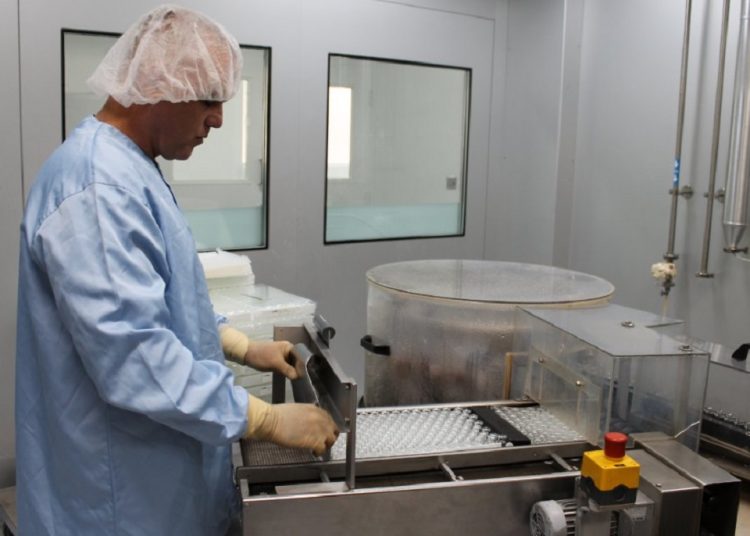The Cuban Center for State Control of Medicines, Equipment and Medical Devices (CECMED) approved this Friday the Phase II clinical trial of a dose of the Soberana Plus vaccine candidate in convalescent COVID-19 patients.
The study, which will be developed at the Institute of Hematology and Immunology and at the National Center for Sex Education, aims to evaluate the safety, reactogenicity and immunogenicity of the Cuban drug, Cubadebate reported.
Aprueba el CECMED el inicio del Ensayo Clínico Fase II del candidato vacunal SOBERANA Plus, en convalecientes de COVID-19. https://t.co/qLKycDjsTj
— CECMED (@cubacecmed) April 10, 2021
Soberana Plus is the world’s first vaccine candidate designed for recovered COVID-19 patients to reach clinical trials, the source said.
According to the Cuban regulatory authority, the trial will involve volunteer “convalescent adults of both sexes, aged between 19-80, with a history of mild or moderate COVID-19, or asymptomatic infection.”
A note from CECMED adds that the approval of the study is based on the results obtained in the previous phase of clinical trials with the vaccine candidate, which demonstrated the ability to “induce high titers of neutralizing antibodies in convalescents.”
For her part, the director of research at the Finlay Vaccine Institute (IFV), Dagmar García, stated that the formula has shown “excellent safety and immunogenicity results with a single dose in Phase I, which position this strategy.”
Developed by IFV scientists, the drug was included as a third dose—also called a booster dose—in vaccination schemes of the three phases of clinical trials with Soberana 02, and in Phase I with Soberana 01.
Cited by the source, García affirmed that this is a new step in the search for a vaccine for convalescents from the contagious disease, “today more necessary in the scenario of mutants.”
Cuba is prepared for the most dangerous mutation of the coronavirus registered in some of its variants, the president of the Cuban Biotechnology and Pharmaceutical Industries (BioCubaFarma) conglomerate, Eduardo Martínez, said this Thursday.
“We have the genes that codify for the Receptor Binding Domain (RBD) variant of this mutation,” the most worrying because it decreases the neutralizing capacity of antibodies, both in convalescents and in vaccinated people, Martínez said during the Mesa Redonda television program










